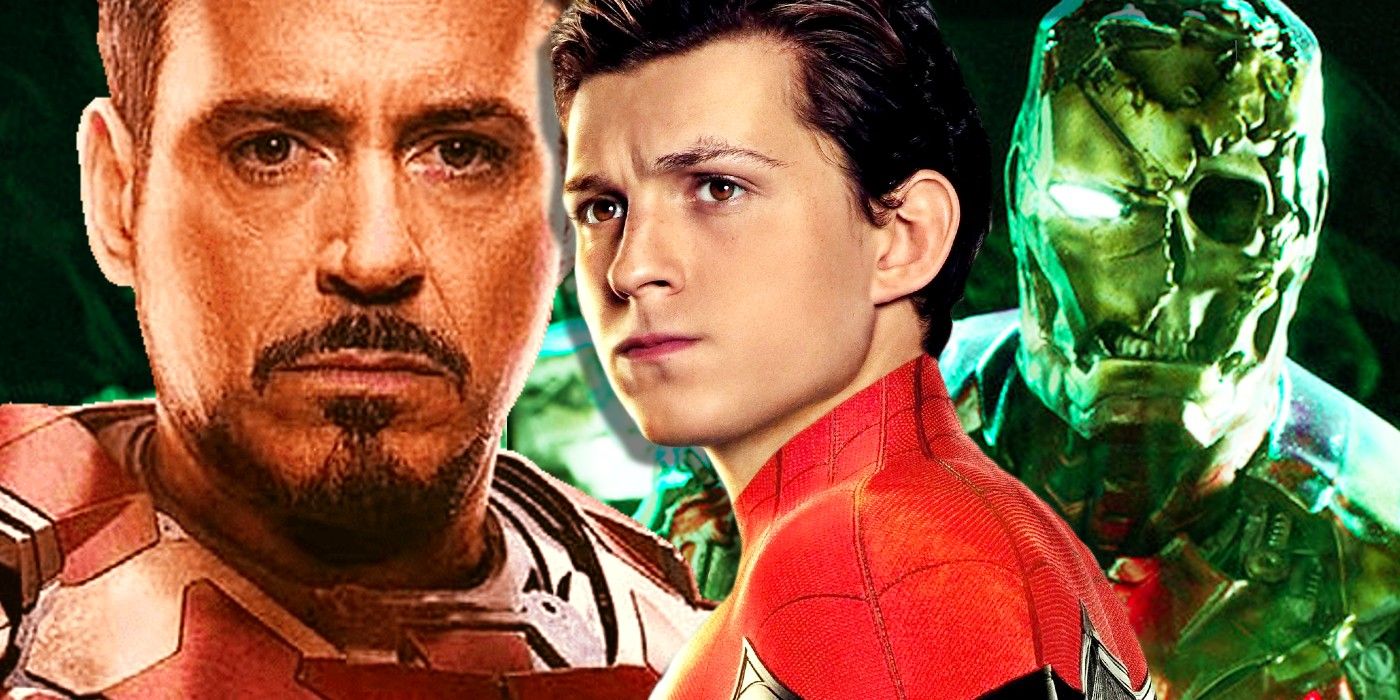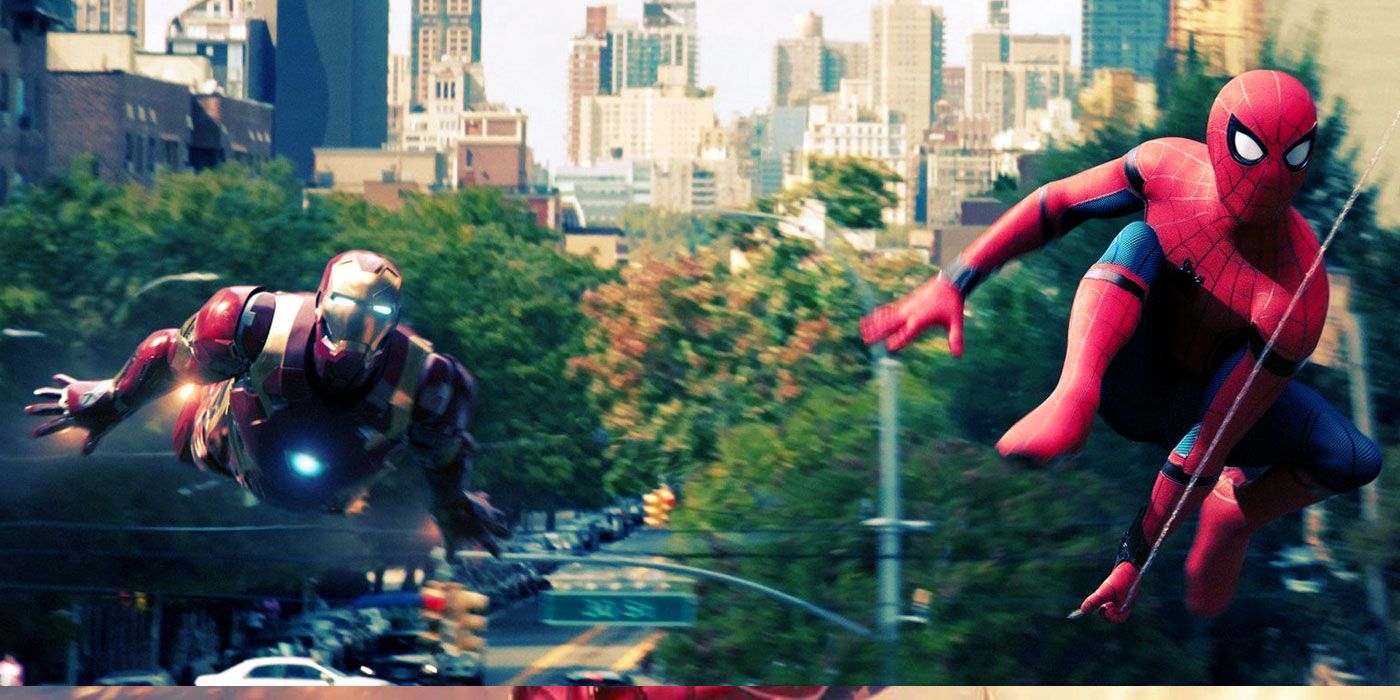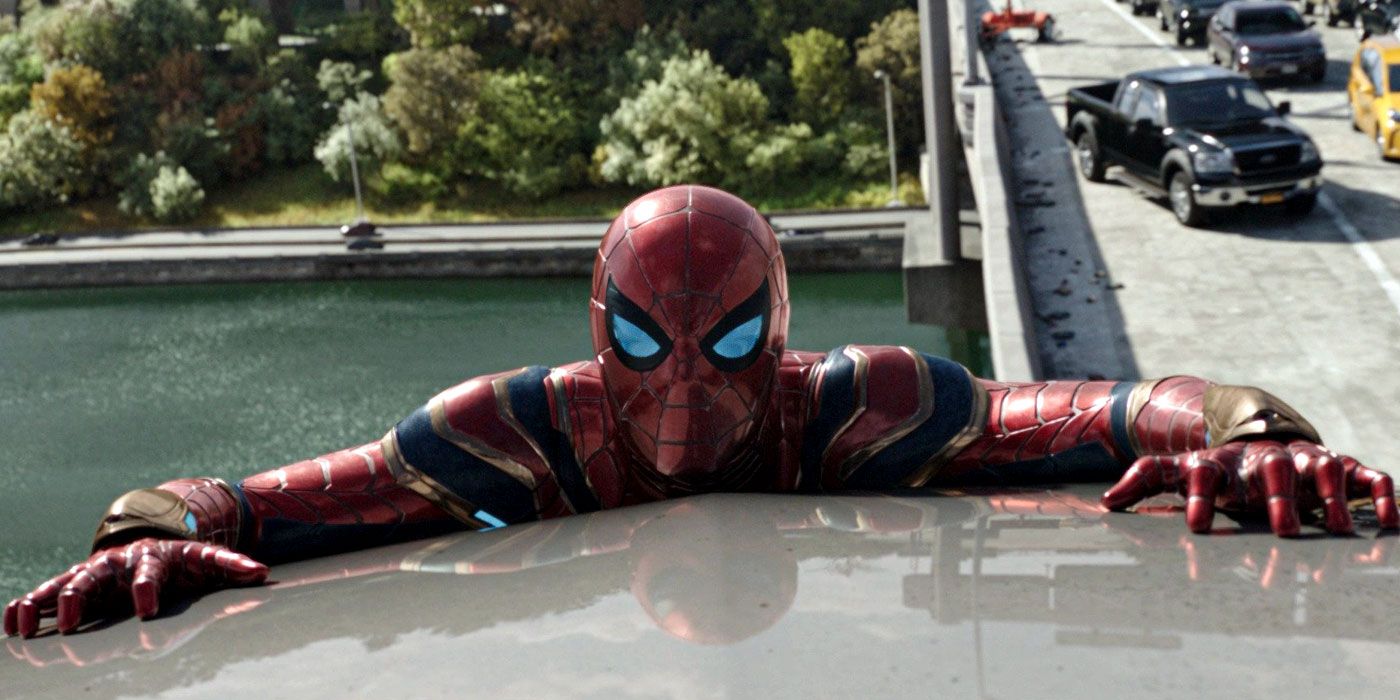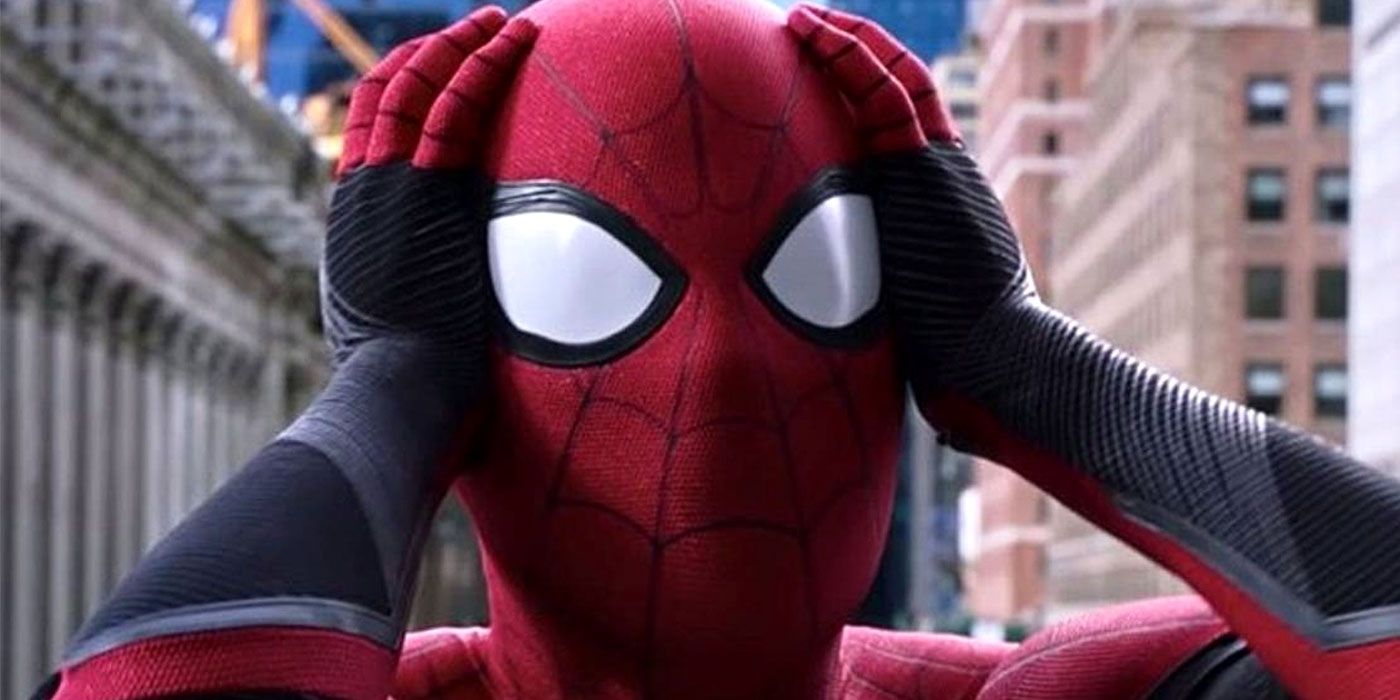Caution! This article contains spoilers for Spider-Man: No Way Home
Spider-Man: No Way Home gives a somber ending to Tom Holland's Spider-Man trilogy, but it also conveniently severs any remaining ties to Iron Man, allowing Spider-Man to stand on his own. In many ways, it reframes Spider-Man's entire involvement in the MCU up to this point as an origin story. The result is that, while everything up until this point is still part of Spider-Man's MCU canon, he can effectively be a whole new version of the character moving forward. Hopefully a much more familiar one.
The events of No Way Home follow on from the ending note of Spider-Man: Far From Home, in a world where everyone knows the true identity of Spider-Man after Mysterio unmasked him. Desperate to reverse the damage done, mostly for the sake of his friends, Peter asks Doctor Strange to cast a spell to make the world forget who he is. But the spell goes badly wrong, causing everyone from the multiverse who knows his secret identity to bleed through into the same reality. At the movie's climax, in a heartbreaking self-sacrifice, Peter asks Strange to cast his spell and make everyone across the entire multiverse forget his identity. While this stops the world from being overrun with every Spider-Man villain ever, it also means no one from Peter's life can remember who he is anymore.
The final moments at the ending of No Way Home are not sad but optimistic, not mourning the past but looking forward to the future. Peter Parker now lives in a spartan New York apartment wearing an outfit he made himself with a second-hand sewing machine. No Stark tech. No Avengers. But this is no longer the naive Spider-Man who was drafted to fight in Captain America: Civil War. Instead, there's a familiar feeling in this scene, similar to the ending of Tobey Maguire's Spider-Man or Andrew Garfield's The Amazing Spider-Man. The MCU's Peter Parker is finally an independent hero, standing on his own two feet without any involvement from Tony Stark.
MCU Peter Parker's Story Has Always Relied On Tony Stark
Spider-Man has never had an MCU appearance without Tony Stark's influence, ever since his first introduction. Every suit he's worn, from the low-key fabric costumes to the high-tech Iron Spider suit, has been created for him by Stark Industries. His own on-screen appearances have largely had the looming presence of Iron Man in the background, either in a literal sense during Spider-Man: Homecoming, or as an ideal to aim for during Far From Home. Iron Man's influence has been Peter's only constant, in one form or another, and this reliance has come at a cost to Spider-Man's character, even as audiences have praised Tom Holland for giving a near-flawless performance of the iconic hero.
The big criticism made by many viewers is that so far, is that the characterization of Spider-Man is too much like Tony Stark Lite. Every version of Spider-Man has always been a nerdy science kid, and he's often been paired up with Tony Stark in the comics, but a prevailing view so far has been that a billionaire-funded version of Spider-Man in the MCU simply doesn't feel right. To summarize a few thousand words worth of Reddit and Tumblr posts on the subject, it makes him less relatable as a protagonist.
How Tony Stark's Legacy Has Held Spider-Man Back
While it was a visual treat to see a version of the Iron Spider suit in a movie adaptation, the fact remains that the high-tech version of Spider-Man seen so far in MCU movies is at odds with the image of a friendly neighborhood Spider-Man. Many have found the worst parts of Far From Home jarring, noting that the movies have shifted in tone from a Spider-Man who has a job delivering pizzas to pay his rent, to a Spider-Man who accidentally launches a drone strike on his own school bus. This may have been played for comedy, but plenty of viewers found it unsettling for a number of reasons.
Tony's influence on Peter has had the effect of profoundly reducing Peter's agency, even in his own stories. In Homecoming, Peter's actions are largely to try and prove himself to Stark. When he messes up, Stark shows up as a deus ex machina to fix the problems. While the message of Homecoming is that MCU Spider-Man must learn to prove himself to himself first — a valuable message, make no mistake — this theme is undercut somewhat by the fact that he's still trying to prove himself in the following movies. When deciding what actions to take, he isn't guided by what he believes is right, but by what he believes Stark would think is right. In Far From Home, he pays a heavy price for this. No Way Home cuts this thread, allowing Peter to learn true confidence in himself.
A core component of Spider-Man as a character is that he has to do a lot of things himself, while also trying to juggle his daily responsibilities as a young adult trying to make his way in the world. Despite the fact that he's one of the Avengers' main superheroes, the thing which resonates the most with audiences across all media, whether in comics, movies, or games, is that Spider-Man is just some kid. Not particularly special otherwise, and definitely not wealthy or overly privileged. The entire appeal of the character is based on the fact that it could be anybody beneath the mask, with other characters like Miles Morales and Spider-Gwen serving to further build on this appeal. This is why the most damaging thing to the MCU's version of Spider-Man has been the near-constant influence of Tony Stark. It adds an extra layer of separation between the character and the audience.
No Way Home Finally Frees Peter From Tony's Shadow
A central theme of No Way Home is about learning to trust yourself — a theme which is given an interesting new meaning for Peter, when he literally meets other versions of himself from elsewhere in the multiverse. The movie spins this story in an interesting way, systematically disentangling Peter from everything in his life up until this point. Notably, it gradually strips away the Stark influence from Peter's life, piece by piece.
Wiping away the past influences from Peter is what No Way Home is really about, and a clever thing the movie does is to use Peter's various spider suits to show this. Very early in the movie, with his secret identity known, a protestor throws paint over his fabric spider suit. Shortly afterwards, the Iron Spider suit is damaged irreparably during his initial confrontation with Doctor Octopus. He's shown later trying to scrub his fabric suit clean, as both a running joke and a visual metaphor for him washing away the old influences from his character. At the end of the movie, the fact that he's wearing a suit he made himself shows that Peter is now Spider-Man on his own terms.
Towards the ending, with his last accessible piece of Stark tech destroyed by the villains, Green Goblin and Electro, Peter has nothing left to rely on but himself. Or more accurately, himselves. Everything used in the final confrontation is created by Peter and his multiverse counterparts. All of Stark's influence has been torn away, and everything that remains is pure Spider-Man ingenuity. By this point, the spell cast by Doctor Strange is just the logical final step in cutting the loose threads.
What It Might Mean For The Next MCU Spider-Man Trilogy
A new Spider-Man trilogy is already in the works, and No Way Home leaves things in an exciting state for this to happen. Peter Parker has a completely fresh start. All at once, he has the freedom to go in any direction he wishes, but also the experience to choose what the best direction should be. In his latest adventure, he not only made that call himself, but was proven right about it. The past trilogy of movies has taught him self-confidence — an important lesson, both for Spider-Man and for the rest of us too.
The question is what Peter might do next, with regard to his friends. MJ and Ned will be moving away to study at MIT, and the end of No Way Home implies that he's sad but willing to let his friends move on without him. This calls back to the kind of decisions Spider-Man has always had to grapple with, about protecting the people he cares for most by hiding his true identity from them. In an era of superhero movies where heroes no longer seem to bother with secret identities, this will surely make a refreshing change in future movies. While this may leave Peter all alone for the time being, it also leaves space for the introduction of other well-known Spider-Man characters, like the MCU version of Gwen Stacey or Harry Osborne. The mid-credits teaser scene suggests that Eddie Brock may be among the next characters to be introduced to Spider-Man's story.
The character of Spider-Man, in every incarnation, is best known as an underdog who's seemingly on his own against the world. Spider-Man: No Way Home resets him to this in a very satisfying way, leaving future MCU Spider-Man stories free to go in any direction they wish. Vitally, the character will no longer be defined or undermined by receiving billionaire funding for his heroism. With all ties to the Avengers having been completely severed, the MCU will finally be able to tell a pure Spider-Man story in the next trilogy.










